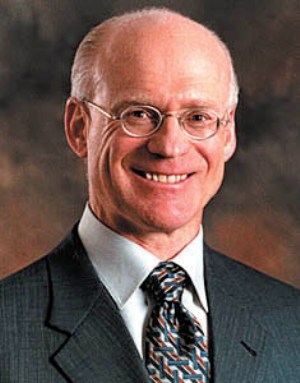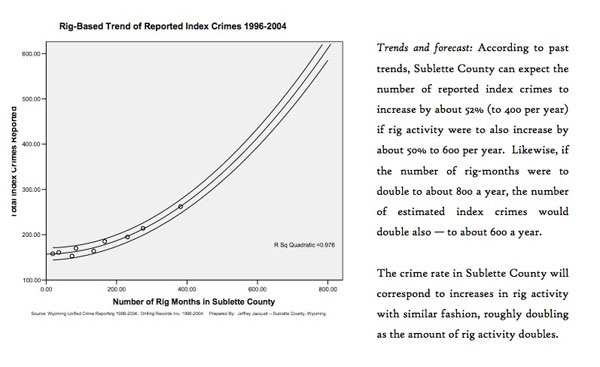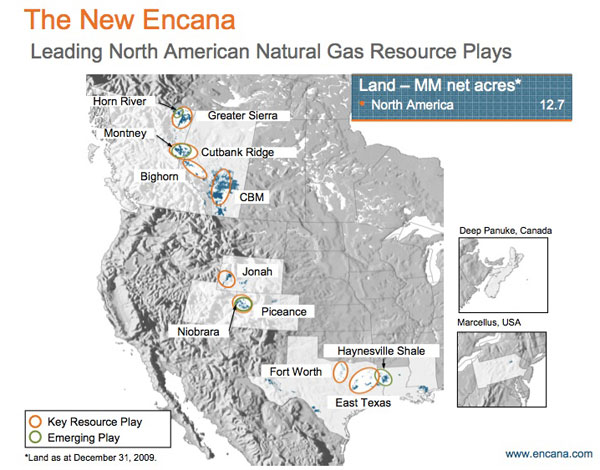
[Editor's note: The first part of the "Gwyn Morgan Files" published yesterday traced Christy Clark key advisor Morgan's rise from farm boy to engineer for the Alberta Energy Company (AEC) crown corporation that grew, with help from Alberta Premier Ralph Klein, into gas drilling colossus EnCana with Morgan as CEO. The installment ended with an account of Alberta rancher Wiebo Ludwig's attacks on EnCana wells.]
After the Ludwig affair, Morgan continued with his quest to make AEC bigger and better. He also ventured into Ecuador's contentious oil fields because he felt that oil development might lift that country out of poverty. Morgan even vowed, as engineers frequently do, to "leave the environment in Ecuador in better shape than we found it."
But EnCana's pipeline venture ended with allegations of corruption, kidnappings, restless natives and environmental degradation. In the end, Morgan sold the whole venture to a consortium of Chinese energy companies including Petro China for $1.4-billion. An insightful documentary by Nadja Drost called Between Midnight and the Rooster's Crow documents the company's ethical dilemmas in the rainforest.
Undaunted, Morgan bucked up, moved on and quested for bigger deals. In 2002, AEC merged with Pan Canadian Resources to form the continent's second largest gas drilling company, EnCana.
The $21-billion merger, the largest in Canadian energy history, gave Morgan's company access to 3 million acres of free-hold land previously owned by the Canadian Pacific Railway. As a result EnCana pays no royalties to the crown on oil or gas collected on this Alberta landscape.
The new mega-firm opened the door to a different approach to gas drilling or what Morgan called "resource plays." It involved the use of hydraulic fracturing and horizontal drilling for extreme gas wells but on an industrial scale. That meant drilling wells just five acres apart while pumping massive amounts of chemicals, sand and water into deep shale rock or shallow coal seams to release small pockets of methane. Some industry folk called it "carpet bombing."
The brazen intensity of EnCana's industrial drilling methods (bigger is never greener) dramatically increased natural gas reserves and drove down the price of natural gas. It also overwhelmed regulators and unsettled rural communities from Sublette County, Wyoming to Dawson Creek, British Columbia.
But all the carpet-bombing made EnCana an energy powerhouse. In 2004, EnCana bought out Tom Brown, a U.S. gas firm with close ties to George W. Bush, the petro politician from Texas. The deal allowed EnCana to take advantage of $14-billion in tax relief to energy companies made by the oil friendly Bush/Cheney administration.
"We haven't just gotten bigger, we believe we've gotten better through unconventional thinking," boasted Morgan at the time.
EnCana's rocky record in the Rockies
But the scale of the company's hardheaded drilling campaign generated unconventional trouble throughout the Rocky Mountain west.
In northwestern Colorado's Garfield County, Morgan's obtrusive drilling campaigns provoked a community political uprising, lawsuits, public health investigations and regulatory reforms.
After the region experienced a 39 per cent increase in drilling, the Colorado School of Public Health warned in 2008 that local residents could be exposed to "air pollutants, toxic chemicals, metals, radiation, noise and light pollution" resulting in illnesses, health problems including psychological and social disruption."
Related studies found that Morgan's drilling booms came with an invasion of itinerant fracking crews that unsettled the quality of social life. EnCana's resource play in Garfield, for example, increased the hospitalization rate for children for respiratory diseases; multiplied alcohol and drug disorders and catapulted violent crimes rates from 8.5 to 19.7 per 10,000 residents. Drug violations also doubled.

EnCana's intense fracking operations, for example, turned Laura Amos's water well into a fizzing and foaming geyser and then transformed the outfitter into an environmental crusader. Other residents documented repeated infractions and pressed for stronger regulations.
Toxic air pollution from the company's natural gas storage tanks grew so bad that the state ordered the firm to build a $407,000 air pollution control system for the region.
In 2004, Colorado's timid Oil and Gas Commission also fined the company then a record amount ($371,200) for a poor concrete job that resulted in methane and benzene seeping into a creek south of Silt, Colorado. A $300,000 state investigation into the contamination is still ongoing.
Appalled by the pace and scale of drilling, many landowners in Garfield often negotiated with the company with a copy of Saboteurs on their kitchen table. [Saboteurs is Andrew Nikiforuk's book on Wiebo Ludwig's attacks on EnCana sour gas producing wells. -- Editor]
Morgan's lectures on morality
In southern Alberta, a rapid shallow gas drilling program combined repeated wildlife violations on the Suffield military base forced Lt. Col. Dan Drew, like Wiebo Ludwig, to draw a line in the sand.
Mandated to protect the Suffield National Wildlife Area, a special grassland reserve located within the base, Drew confronted the company and wrote scores of angry letters to National Defense noting that "the scale of oil and gas activity continues to expand promising to further aggravate the situation."
In central Alberta's farm belt between Calgary and Edmonton, EnCana drilled thousands of shallow wells for methane trapped in coal seams and upset dozens of landowner groups. But whenever a major fracking problem or water contamination incident hit the news, the company quickly made donations to local recreation centres or scholarship funds.
EnCana also left its aggressive calling card in Wyoming. In a remarkable piece for the New Yorker magazine titled "Boomtown Blues," the journalist Alexandra Fuller described the company's destructive social impact in the ranching community of Sublette County in unsparing detail. With every EnCana rig invasion came a surge in transient workers, crime, crystal meth and over-booked jails, wrote Fuller:
"The study shows the crime rate rising by 30 per cent from 2004 to 2005, a period when drilling activity increased by fifteen per cent. Air quality and the quality of life in the area have also been affected. Drilling has recently increased in the Wyoming Range and the surrounding foothills, and the steady flow of air traffic (helicopter relays to transport equipment to remote areas), the use of explosives for seismic work, and the constant rumble of trucks carrying helmet-clad men across the desert all reinforce the sense that this boom is, in part, war-related."
EnCana, which even considered hiring Chinese companies to operate its drilling rigs to cut costs, left a mess in Pavillion, Wyoming, too. Before EnCana arrived, rancher and Vietnam War veteran Louis Meeks had clean water to drink. After EnCana drilled 500 feet from his home and water well, Meeks was left with a methane-rich turbid mess.
The more questions Meeks asked about well contamination in his community, the more EnCana treated him like a trouble maker: "Don't you want the country to be able to produce energy?" the company asked. "Do you want to live naked in a tree and eat nuts without any modern conveniences?"
Meeks, who has been battling the company ever since, maintains that natural gas companies can drill responsibly, make money and still protect groundwater. A 2010 study by the U.S. Environmental Protection Agency found "total petroleum hydrocarbons" in 17 of 19 drinking wells in Meeks' neighborhood.

Morgan, who rarely references the social or groundwater issues raised by unconventional gas drilling, now gives speeches about ethics to the Governor General's Canadian Leadership Conference. U.S. landowners might be inspired by Morgan's advice:
"Communities which tolerate dishonesty and unfair play will produce workers and leaders who reflect such cultural values. The much more desirable corollary of that is also true."
EnCana's grip on BC's economy
While EnCana industrialized rural Colorado and Wyoming, Morgan's company also invaded Peace River Country in pursuit of sour gas and shale gas deposits.
Although Morgan boasts "a strong bias against government intrusion into any industry," he championed Gordon Campbell's heavy subsidization of natural gas drilling in the province or what Morgan dubbed "an encouraging policy environment." It included "streamlined" regulations; low royalty programs for shale gas as well the public construction of roads and infrastructure for shale gas companies. "From EnCana's perspective, many of the right things are being done by the province," said Morgan in a 2004 speech.
A year later Morgan bluntly laid out the company's extraordinary grip on the province's economy:
"EnCana is the largest corporate source of revenues to the government in B.C. and we have been for a number of years. As a whole, our industry is responsible for close to $2 billion a year in revenues for the government -- that's just royalties and land sales. It doesn't include the income tax from the 12,000 people working in the industry here. The total impact is something like $12 billion a year. That's enormous -- bigger than any other industry in the province including, of course, forest products."
But EnCana's frantic drilling agenda caused much grief in B.C., too. While drilling the Montney formation, for example, the company often fracked each well five to 11 times with up to 100 tonnes of fracking fluid each time. The process turned quiet rural roads into industrial zones clogged with hundreds of fracking trucks. Farmers and ranchers complained about the heavy traffic, sour gas leaks, air pollution, property devaluation, livestock deaths and the industrialization of rural life.
A 2006 B.C. study by the region's medical health officer simply noted, just like the Colorado School of Public Health, that "Rapid growth of the oil and gas industry within the province of British Columbia has outpaced our understanding of possible health and safety impacts on communities."
Unlike many U.S. states and Quebec, British Columbia has yet to demand a systematic review on the impact of shale gas drilling on water, wildlife, public health, provincial revenue, energy returns, First Nations or the ecology of Northern B.C.
Gwyn Morgan, petro politician
After being crowned "outstanding CEO" and "Canada's most respected CEO," in 2005, Morgan left the company that he spent 30 years building. He then began a cliché-ridden business column for the Globe and Mail that extols corporate freedom and low royalties for resource owners. He also tried on some political shoes.
But a series of speeches to the Fraser Institute and Empire Club of Canada which criticized ethnic groups, multiculturalism, climate change and the federal Liberal party offended a lot of oil patchers. Many considered Morgan's comments to be self-serving or crudely partisan. Others thought Morgan had stepped out of his area of expertise into the stormy world of politics with little grace. (Morgan's Tory views represent but a third of the people working in the patch.)
Investors also took a great disliking to the executive when he supported Stephen Harper's "Halloween Massacre," an unexpected change in tax rules for income trusts that coolly wiped out $35-billion worth of capital. The sudden move left a lot of puzzled EnCana investors (40 per cent of the company was gearing up to become a trust). It also resulted in many B.C. pensioners with smaller savings accounts.
Even with his impressive Tory connections, Morgan stumbled in the political arena. After Prime Minister Stephen Harper nominated the "outstanding Canadian" to head the new Public Appointments Commission in Ottawa, parliamentarians summarily dismissed "the outstanding CEO" as an "unsuitable" candidate. The MPs mostly did so on the basis of Morgan's highly partisan speechifying or political incorrectness.
But the haughty parliamentarians missed the critical issue. Was it ethical or correct for the former head of the continent's second largest gas company to be making decisions about appointments to government agencies such as the National Energy Board. Or to do so for only a dollar a year? If the Canadian people weren't paying for Morgan's services, then who was?
The key questions, the ones that mattered, never got asked.
Today, of course, Morgan has emerged as the helpful adviser and financial backer of B.C.'s Premier Christy Clark. One of Morgan's favorite "truisms" goes like this: "Most people get the leadership they deserve."
British Columbians might want to ponder that Morganism along with the slow "petrolization" of their politics fueled by unconventional gas. ![]()
Read more: Energy, Politics, Environment















Tyee Commenting Guidelines
Comments that violate guidelines risk being deleted, and violations may result in a temporary or permanent user ban. Maintain the spirit of good conversation to stay in the discussion.
*Please note The Tyee is not a forum for spreading misinformation about COVID-19, denying its existence or minimizing its risk to public health.
Do:
Do not: